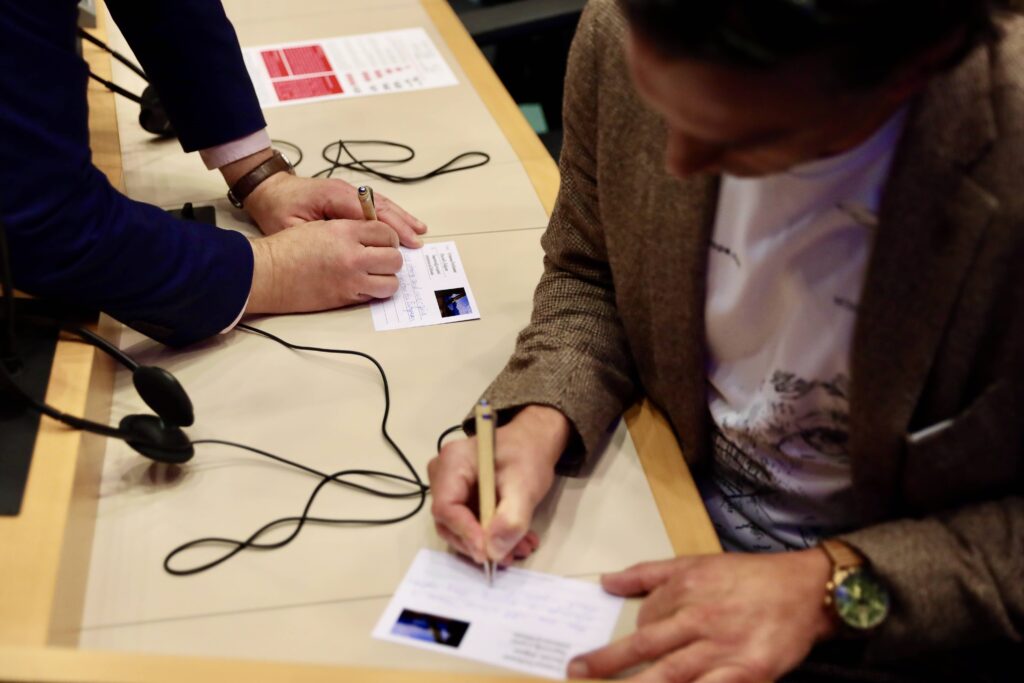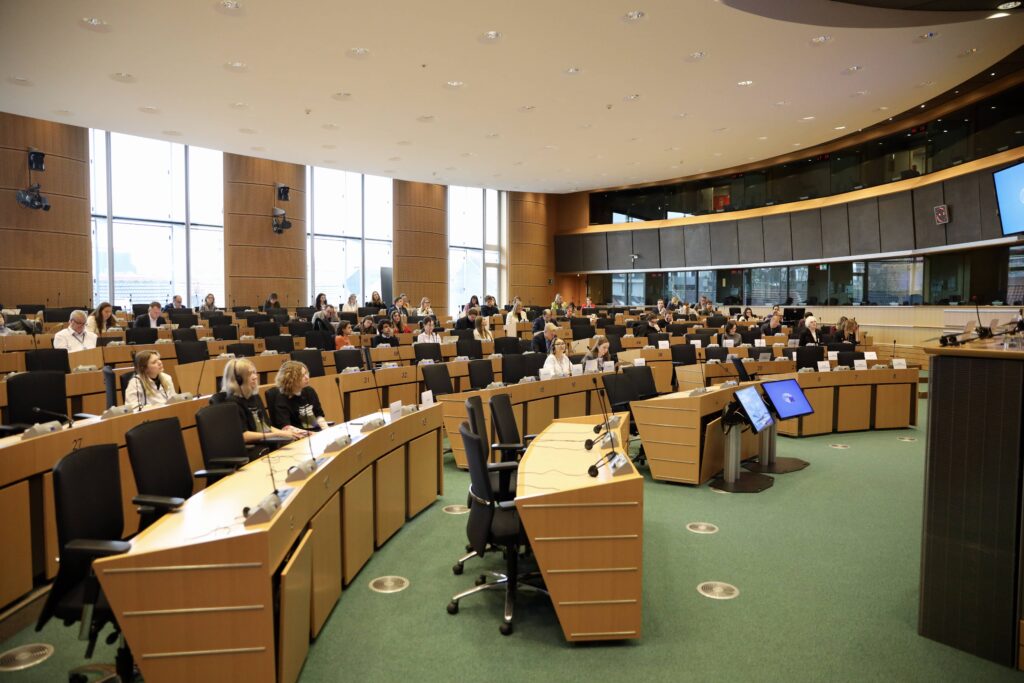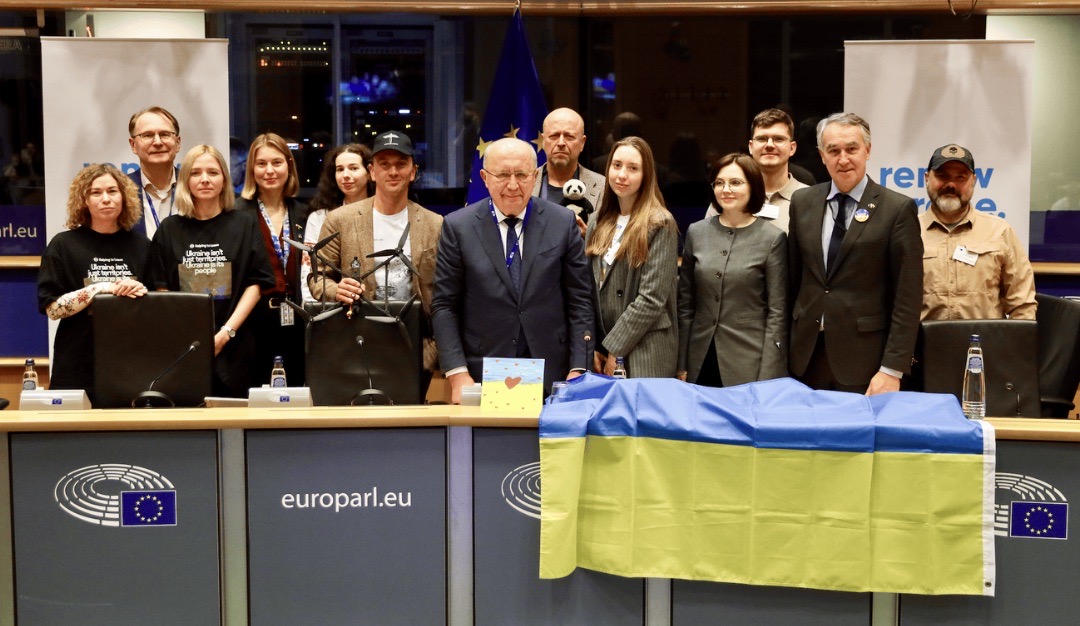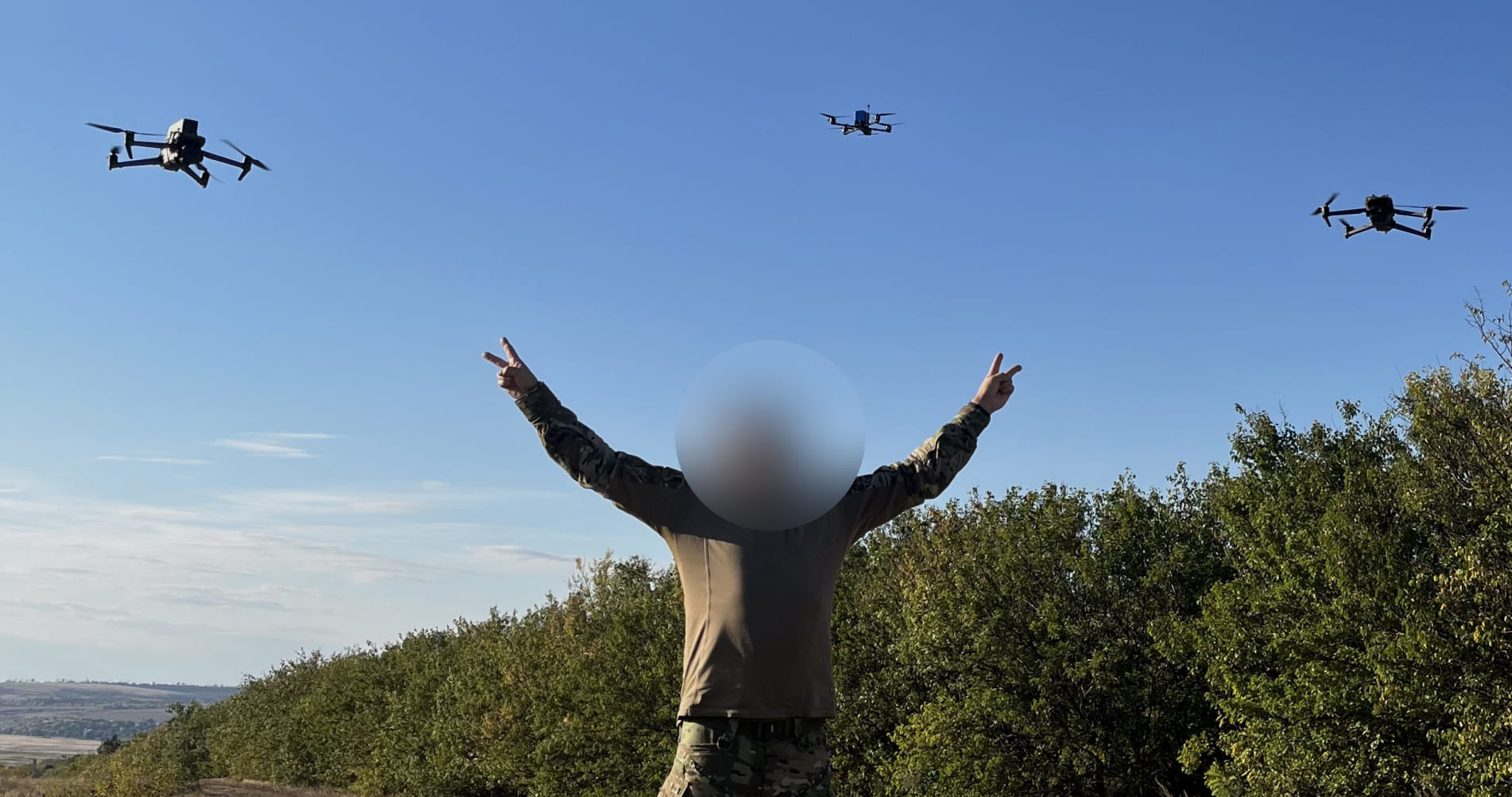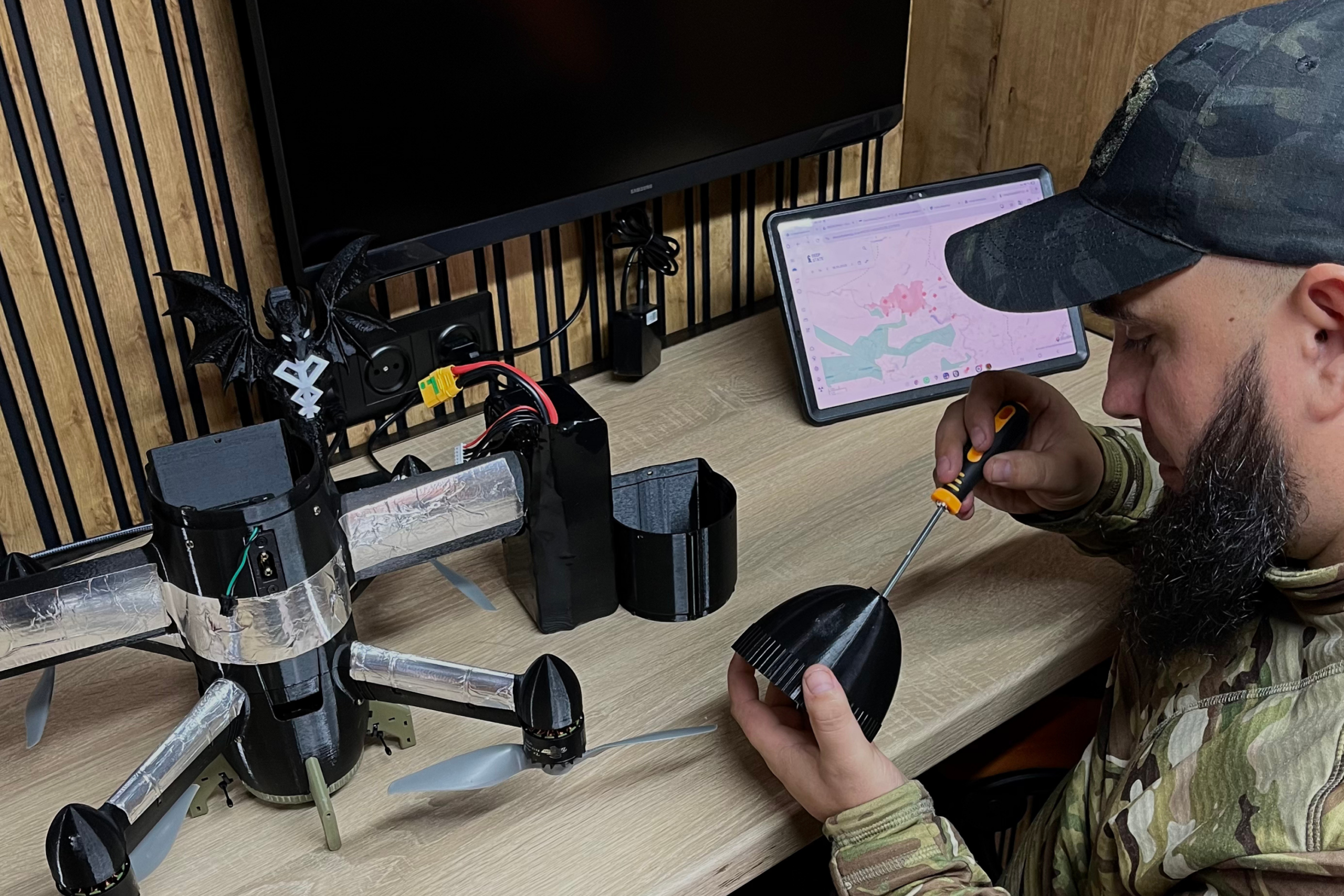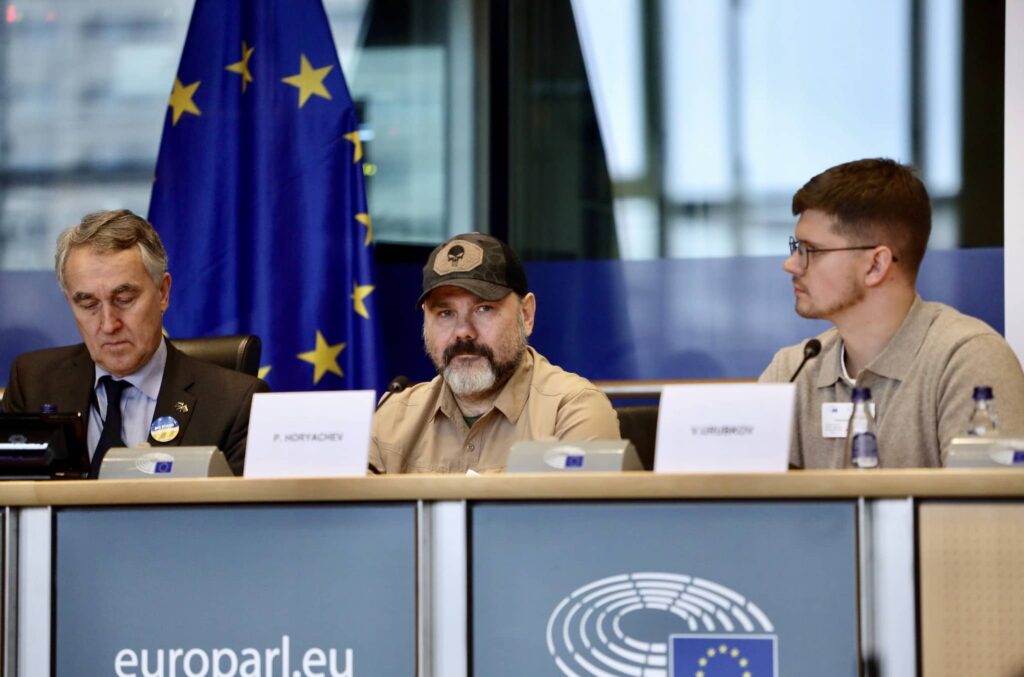
In late October, leaders, policymakers, innovators, and NGOs gathered in Brussels for the Renew Europe Group’s summit, “The Role of Civil Society in Ukraine’s Security and Post-War Recovery.” The event was meant to focus on long-term recovery, but discussions quickly shifted to the urgent realities of modern war and the immediate support Ukraine needs now.
What Dignitas Ukraine Shared and Why It Matters Now
One of the key participants was Pavlo Horyachev – an instructor, engineering expert, and long-time Dignitas Ukraine volunteer. His presentation made a strong impression.
Pavlo explained what Dignitas does on the ground, how the organization trains Ukrainian defenders, provides critical technology, and works directly with frontline units. He showed why this work matters and why the speed of modern war makes Ukraine uniquely experienced and uniquely valuable for partners around the world.
The event also brought together a wide range of NGOs from Ukraine and across Europe, each sharing their work and impact. The scale of their activities impressed everyone.
From Ukraine, organizations such as Come Back Alive, Arm Women Now, Superhumans Trauma Center, Save Ukraine, Numo, Sisters!, and Bright-Ukraine described how they support defenders, civilians, and frontline communities.
They were joined by European groups including Twitter Convoy from Latvia, Blue/Yellow from Lithuania, Wings for Europe from Belgium and Luxembourg, Freedom for Ukraine (Frihed for Ukraine) from Denmark, and the Stand with Ukraine Foundation from Poland.
Together, these organizations demonstrated a powerful, cross-border civil society effort whose collective impact was truly eye-opening for all attendees.
Europe’s Reality
Interestingly, at another summit in Berlin where Pavlo also participated, he heard detailed explanations about how German regulation works and why development cycles take so long.
In Germany, any new defense technology can take up to 5 years before it becomes fully approved. In contrast, Pavlo reminded everyone that in Ukraine, technology can become outdated in just a month because the battlefield evolves so quickly. What worked yesterday may be ineffective tomorrow. Innovation has to move at the speed of survival.
This gap – between the speed of war and the speed of European bureaucracy – became one of the most important takeaways of the summit. Modern warfare requires rapid adaptation, and slow systems simply cannot keep up. Many in Europe still do not fully understand what today’s war looks like.
At the same time, one of the main speakers, Andrius Kubilius, European Commissioner for Defence and Space, emphasized that Europe must learn from Ukraine – and is already doing so. He explained that European officials regularly travel to Ukraine, meet with Ukrainian leaders, and study Ukraine’s battlefield-driven innovations. Kubilius noted that conversations with figures like Mykhailo Fedorov and General Valerii Zaluzhnyi have provided Europe with valuable insights that are shaping its understanding of modern defense and security.
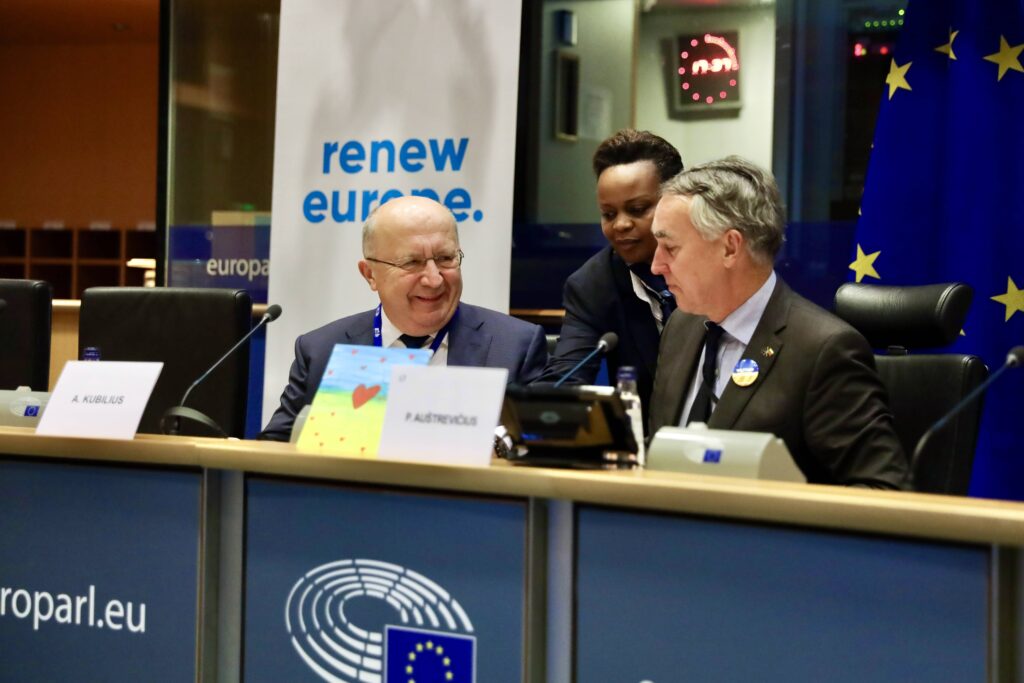
Why Europe Needs Ukraine’s Defense-Tech Knowledge
Pavlo used his time with European drone manufacturers, defense-tech developers and policymakers to underline one point: if Europe wants to strengthen its defense-tech sector, it must move much faster.
He urged companies not to spend years perfecting prototypes in labs. Instead:
• come to Ukrainians first
• ask whether the idea will work
• test the technology in Ukraine, directly in real combat conditions
Ukrainians have firsthand experience with drones, robots, and battlefield technologies under the most intense and rapidly changing conditions. The Ukrainian battlefield instantly reveals what works and what fails – no simulation can match that.
Europe also has long land borders and vast coastlines, all potential entry points for enemy drones. Ukraine already knows how to protect such areas because it has faced every type of drone attack and has developed effective, low-cost, battle-tested solutions.
And Ukraine is ready to share this knowledge.
If Europe seeks Ukraine’s help now, it won’t have to pay the same price Ukraine already paid – the price of countless lives.
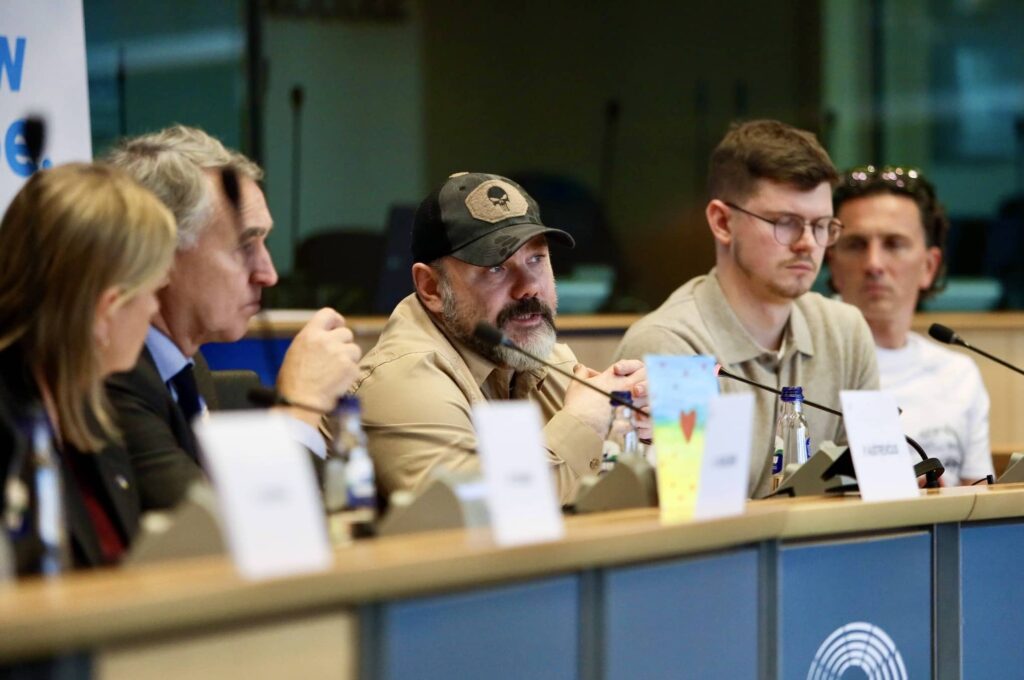
A Summit Focused on Today – Not Tomorrow
Interestingly, although the summit was officially focused on post-war recovery, most discussions centered on the urgent reality of today. The room was filled with stories about how difficult conditions are for Ukrainian defenders and what kind of support is critically needed. No major policy decisions were adopted during the event, but the conversations themselves were crucial. They revealed how much Europe still must learn – and how much Ukraine can teach.
Europeans Remember Why Ukrainians Fight
Pavlo also saw something deeply inspiring: countless Europeans who truly support Ukraine with open hearts. Many participants talked about the summer days when Ukrainians took to the streets with cardboard signs to defend their democratic values – values shared with the European Union.
People at the summit said they are confident Ukrainians are doing everything possible to build and protect democracy in their country.
A Global Ukrainian Community That Inspires
There was also recognition of the global Ukrainian community. Across Europe and around the world, Ukrainian organizations continue to support the country in every way they can. This unity – Ukrainians helping Ukrainians regardless of distance – moved many attendees and encouraged them to continue supporting Ukraine.
What the Summit Ultimately Revealed
Events like this summit matter. They show that civil society, innovators, and volunteers are essential to Ukraine’s security and its future recovery. They also highlight an important truth: Ukraine is not only defending itself, but helping Europe understand the future of warfare.
And as Pavlo reminded everyone in Brussels, Ukraine can be incredibly useful to Europe. Together, we can be strong – but only if the world listens, learns, and acts fast.
